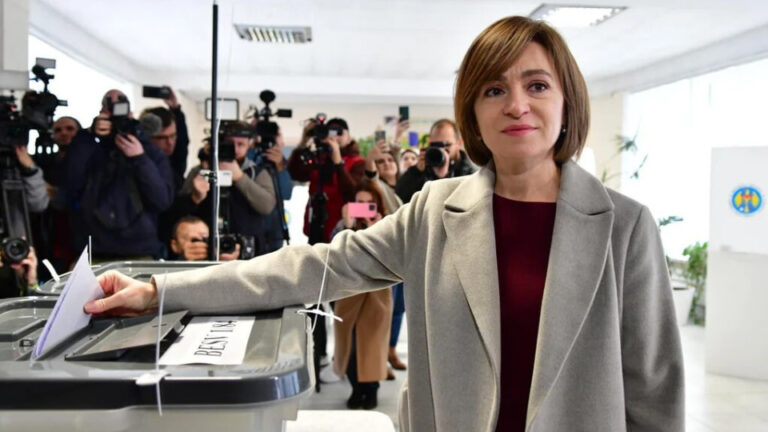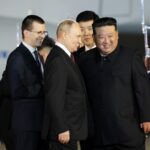Less than a week before parliamentary elections, Moldovan authorities conducted 250 searches targeting more than 100 people amid suspicions that Russia is attempting to destabilize the country and sway the vote.
“The searches are linked to a criminal case concerning the preparation of mass disturbances,” officials said.
1. Moldova Police Conduct Hundreds of Searches Over Suspected Russian Plan to Incite Unrest on Election Day
- If the ruling Party of Action and Solidarity (PAS) loses, the Kremlin will likely seize the moment to stage large-scale protests demanding the immediate resignation of President Maia Sandu. The aim, would be to remove the pro-European leadership and create a political vacuum that allows pro-Russian forces to consolidate control. If PAS prevails, pro-Russian groups are expected to mount a sweeping campaign to discredit the results—alleging fraud and illegitimacy—to provoke internal conflict and erode trust in state institutions.
- Should PAS forfeit the parliamentary majority it held in the last legislature, the party would be forced to seek partners, triggering fraught negotiations and compromises. Such a fragile coalition would be less effective at pushing through the reforms essential to Moldova’s bid for European integration. This political fragmentation could benefit pro-Russian forces, which would be better positioned to block key legislation and disrupt the functioning of the government.
Parliamentary elections are scheduled for September 28, 2025.
A CBS Research poll conducted September 6–13, 2025, found that the pro-presidential Party of Action and Solidarity would take 29.7 percent of the vote—insufficient to form a majority. The “Patriotic Bloc,” led by Socialist Igor Dodon, would place second with 13.2 percent, and “Our Party,” led by Renato Usatîi, would take 7.5 percent. Other political forces, including the “Alternative” bloc, fail to clear the threshold, polling at 4.2 percent or less. Notably, 26.8 percent of respondents remain undecided.
For Moldova, which obtained EU candidate status in 2022, these elections will set the country’s geopolitical course for years to come. A defeat for pro-European forces could slow—or even halt—the integration process, usher in renewed political instability, and risk drawing Moldova back into Moscow’s sphere of influence.
For the Kremlin, Moldova’s parliamentary vote is a continuation of its confrontation with the West and a test case for reasserting influence over post-Soviet states. A victory by pro-Russian forces in Chişinău would weaken the European Union’s hand in the region, undermine confidence in the European path, and open another front in the hybrid war along Ukraine’s southwestern border.
In the run-up to the vote, Moldova faces entrenched domestic challenges—corruption, poverty and low incomes—that provide fertile ground for populist and pro-Russian narratives. These parties are leveraging public discontent to accuse the pro-European government of ineffectiveness and to advocate a shift in geopolitical alignment.
Russian authorities, as early as the spring, drew up a plan to interfere in Moldova’s parliamentary elections. The Kremlin’s objective is to depress the chances of PAS and ultimately remove President Sandu from power. The plan includes recruiting Moldovan citizens abroad—particularly in Russia—to vote at polling stations in the EU and other countries, mobilizing participants for protests, and conducting a broad disinformation campaign on Telegram, TikTok and Facebook. We are confident the situation could spiral out of control through the involvement of Russia’s military intelligence service, the GRU.
There are signs of preparations for a forceful action by a clandestine network backed by the Moldovan oligarch Ilan Shor, who is under U.S. sanctions for “malign Kremlin influence operations” and is currently in Moscow. This network is linked to Shor through the nongovernmental organization “Eurasia.” “Eurasia” operates in Moldova “on behalf of the corrupt fugitive oligarch Ilan Shor to destabilize Moldovan democracy.” Financing flows through Promsvyazbank (PSB)—a sanctioned Russian state bank that serves as the official bank of Russia’s Defense Ministry and is a shareholder in one of Shor’s companies. In effect, the influence operation surrounding Moldova’s elections is being carried out within the remit of Russia’s military intelligence. This may point to a growing GRU role in Moldova’s electoral process. It also suggests the Kremlin is unsure of victory and is laying contingency plans for radical measures in the event of defeat.”
“The signs point to the GRU’s expanding hand in Moldova’s elections. The Kremlin, seemingly uncertain of a win, appears to be preparing more extreme options should it lose.”
If PAS loses, the Kremlin will almost certainly move to orchestrate mass demonstrations demanding President Sandu’s immediate resignation—an effort to remove the pro-European government entirely and create a vacuum to be filled by pro-Russian actors. If PAS wins, those forces are poised to wage a far-reaching campaign to delegitimize the outcome—alleging fraud and illegality—in order to stoke internal conflict and corrode public faith in state institutions.

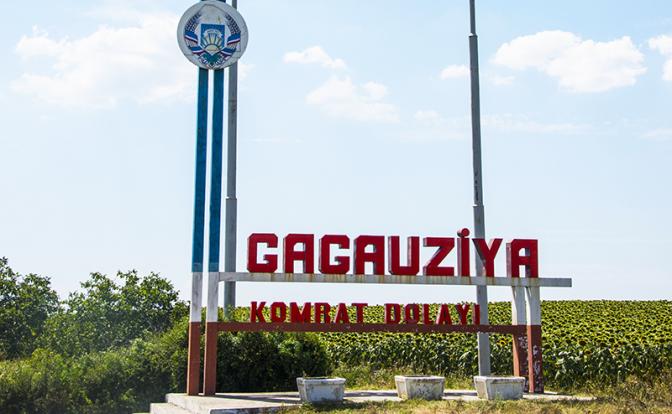
More on this story: Moldova threatened by outside-staged conflict in Gagauzia
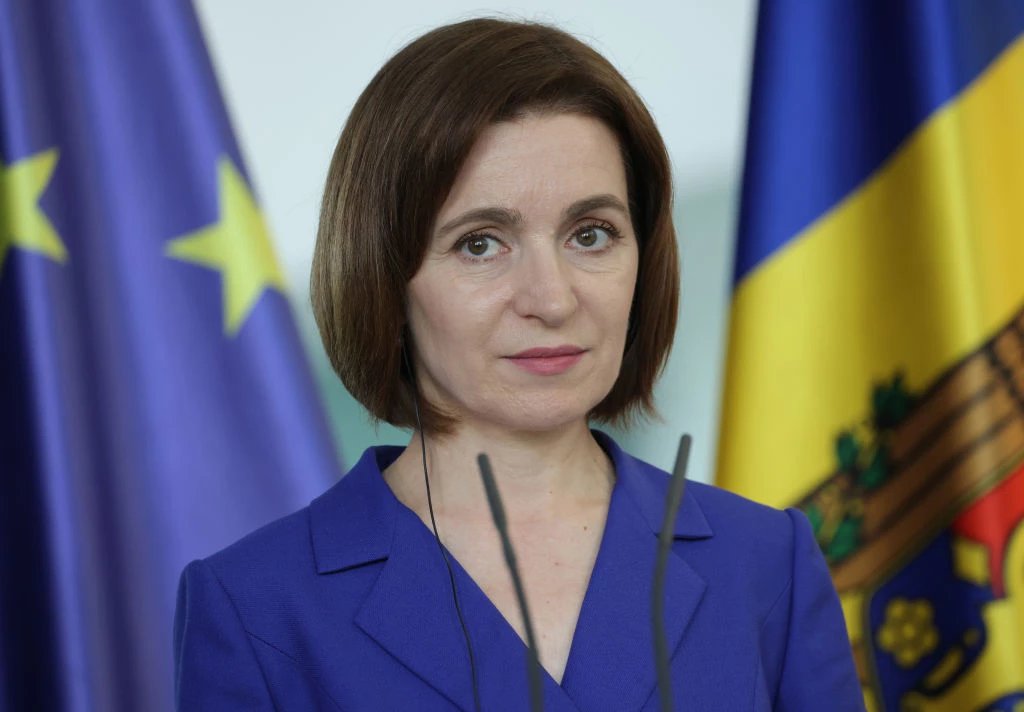
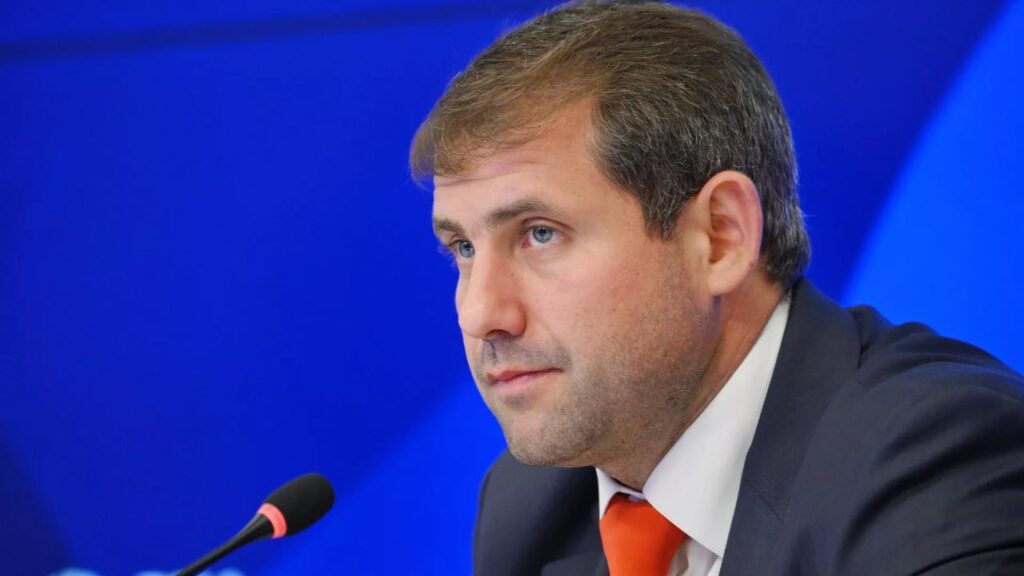
More on this story: Building a Fifth Column: Russia’s Shift in Moldova’s Political Landscape”
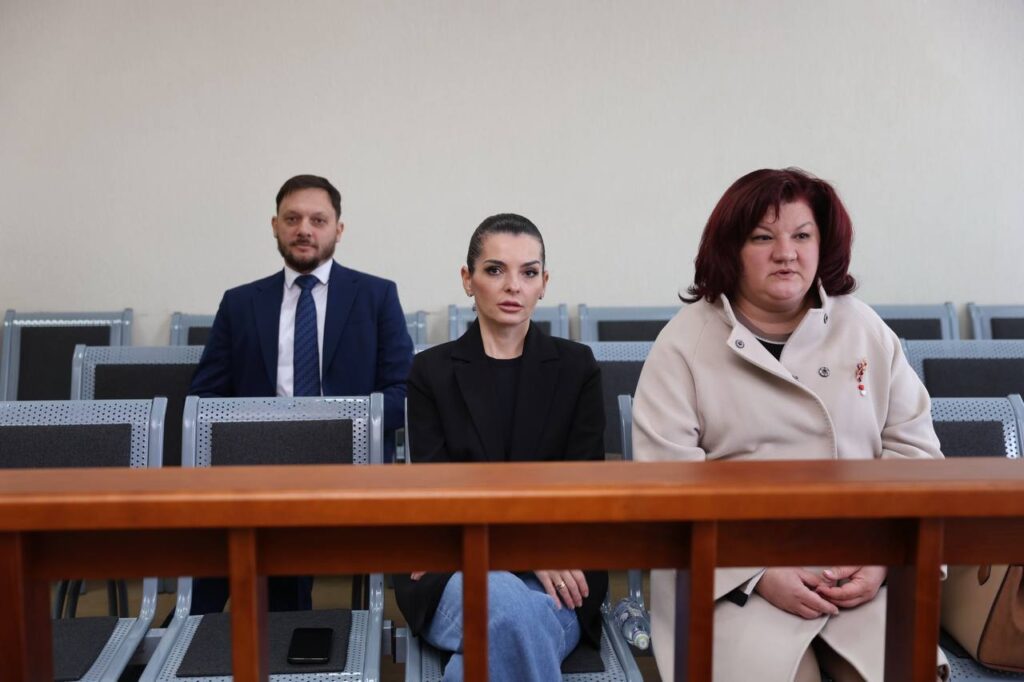
A loss of PAS’s majority would force it into coalition talks and likely compromises, weakening its capacity to deliver the reforms crucial to EU accession. Such fragmentation would play into the hands of pro-Russian factions, enabling them to stall legislative initiatives and destabilize the cabinet.
In their campaign against President Sandu, Russian operatives are recycling the same narratives deployed in the United States in 2016—reviving lurid “child-trafficking” tropes once used against Hillary Clinton.


